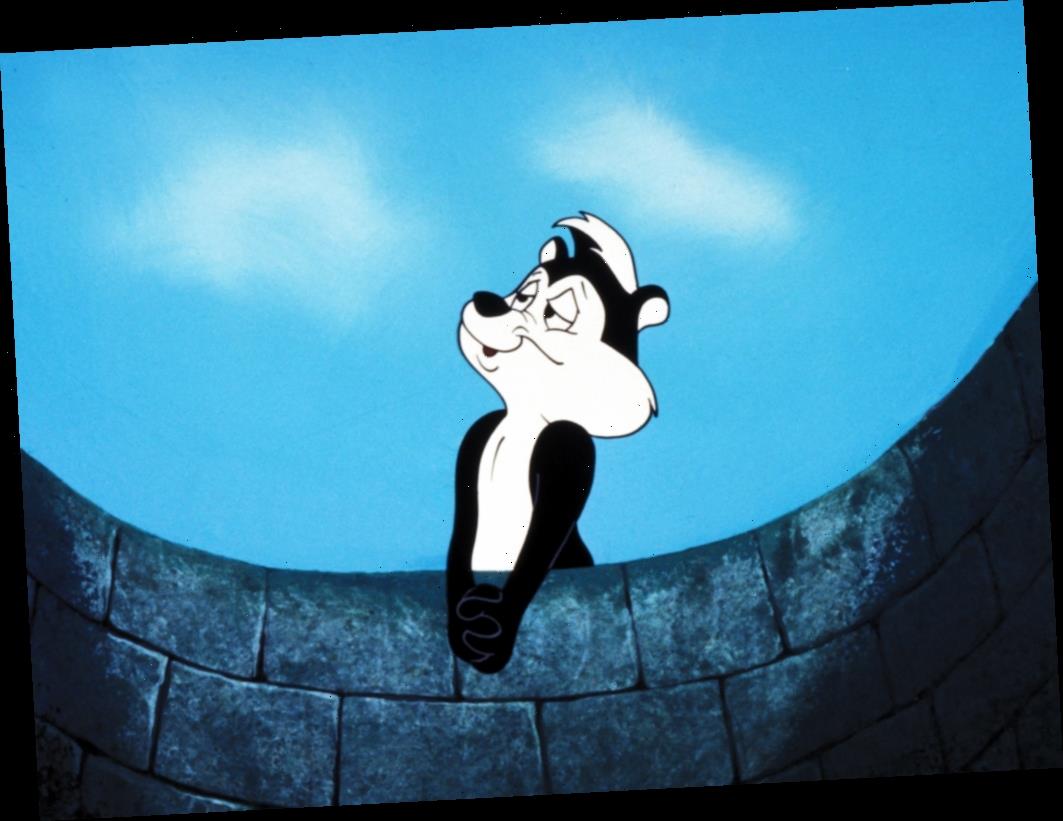If we’ve learned anything from the recent conversation surrounding Dr. Seuss and his books, it’s that we can’t ignore problematic tropes that are prevalent in the content children consume. And a recent New York Times op-ed written by Charles M. Blow is encouraging us all to take a hard look at yet another old childhood favorite: Pepe Le Pew. The piece, titled “Six Seuss Books Bore a Bias,” discusses the way in which many previously cherished works loved by children and parents alike have a dark past of racism, perpetuate rape culture, and more. And while Blow slammed many cartoons, it’s his criticism of Pepe Le Pew that has really sparked a debate online.
Included as part of a list of controversial characters that included Speedy Gonzales and Tom & Jerry‘s Mammy Two Shoes, Pepe Le Pew was described plainly by Blow as a figure that “normalized rape culture.” While many came out in support and echoed Blow’s disappointment in the French cartoon skunk’s depiction, on the flip side there were people who went with the ole “it’s just a cartoon” defense.
On Twitter, Blow doubled down on his New York Times op-ed and shared a compilation of disturbing clips where Pepe Le Pew grabs his female counterparts and forcibly attempts to kiss them — despite their visible discomfort.
“This helped teach boys that “no” didn’t really mean no, that it was a part of ‘the game’, the starting line of a power struggle,” Blow wrote on Twitter. “It taught overcoming a woman’s strenuous, even physical objections, was normal, adorable, funny. They didn’t even give the woman the ability to SPEAK.”
In his New York Times piece, Blow describes his own experience growing up and coming to the realization of the impact cartoons have had on him and the way he viewed race. “I was a teenager before I could start to understand what had been done to me, that I had been taught to hate myself, and for me to start to reverse it,” he wrote.
Let’s be clear: it’s never “just” a cartoon when you consider the impressionable audience that is watching. Cartoons have the potential to seriously influence how our children view the world. Normalizing a “no” as a mere hurdle to overcome as opposed to a firm signal to stop is not okay. And while we can’t erase Pepe Le Pew from pop culture, it is an opportunity to discuss consent with kids and how that should look on and off the screen.
Blow sums it up best in his essay, “It underscored for me that the things that we present children with, believing them innocent, can be highly corrosive and racially vicious.”
Before you go, check out our gallery on children’s books starring girls of color.
Source: Read Full Article


